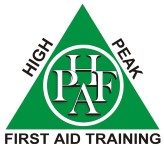Heat stress is a mild form of heat related illness and can presents as the following:
- Mild increase in temperature
- Swelling of the ankles and feet
- Feeling faint
- Lack of salts through sweating leading to muscle cramps
The early signs of a heat related disorder should be treated as this can rapidly escalate to heat exhaustion mainly due to fluid loss and electrolyte imbalance with the following signs and symptoms:
- A core body temperature over 37˚C and less than 40˚C
- Nausea and vomiting
- Headache
- Dizziness
- Increased heart rate (tachycardia)
- Drop in blood pressure (Hypotension)
- Sweating
- Muscle pain, weakness and cramps
As soon a these symptoms are noticed treatment should be started. Finding out what has lead to this may also reveal further information as to why the person is overheating. The video beow is a short clip of someone who could be part of one of your groups who just looks a little hot. Using the tool “SAMPLE” is a good way to find out what is happening.
| S | Signs and Symptoms |
| A | Allergies to food and drugs |
| M | Medication currently taking |
| P | Past and relevant medical history |
| L | Last meal/drink |
| E | Events leading to current situation |
Let’s say the person in the clip below is called Bob and you have noticed he looks as if he is overheating. A conversation using SAMPLE could go like this:
You: “Hey Bob, we are all stopping for a drink as it’s so hot. How about joing us in the shade over here”.
Bob: “I am really struggling with this heat today, it’s not like me at all”.
You: “Well how about I take your rucksack off as it will give you back a chance to dry out and we have something to drink. Have you had enought to eat and drink today Bob? (Last meal).
Bob: “Food yes, I had a good breakfast this morning but I do not think I have had enough fluid. I was a little late getting to the breakfast table and left my second water bottle behind by mistake. I had half a litre but maybe that is not enough as my urine was rather brown earlier on”.
You: “You do look rather red and sweaty, how do you feel?” (Signs and symptoms).
Bob: “A little faint”
You: “Ok, if this is unusal for you, do you mind me asking if you are on any medication? Your form states you take Warfarin for your heart”.
Bob: “Yes, I do and the Doctor gave me some different tablets for my blood pressure but I am not sure how I am getting on with those. I think I preferred the ones I had after my stent was put in last year”. (Medication and medical history).
You: “Also Bob, do you have any allergies to food or drugs that you know of as I noticed you have a rash, which might be heat related”. (Allergies).
Bob: “I have no allergies”.
By using SAMPLE you can find out if there are any contributing factors to Bob’s deterioration. Whilst asking questions you can stat the treatment for heat stress as you do not want him to to progress to heat exhaustion or heat stroke. Consideration should be made to:
- The duration left of the walk?
- How much shade is there?
- How strenuous the walk is?
- If Bob wants to carry on?
- If you are happy for him to carry on?
- How much fluid you have left and if Bob will drink enough?




